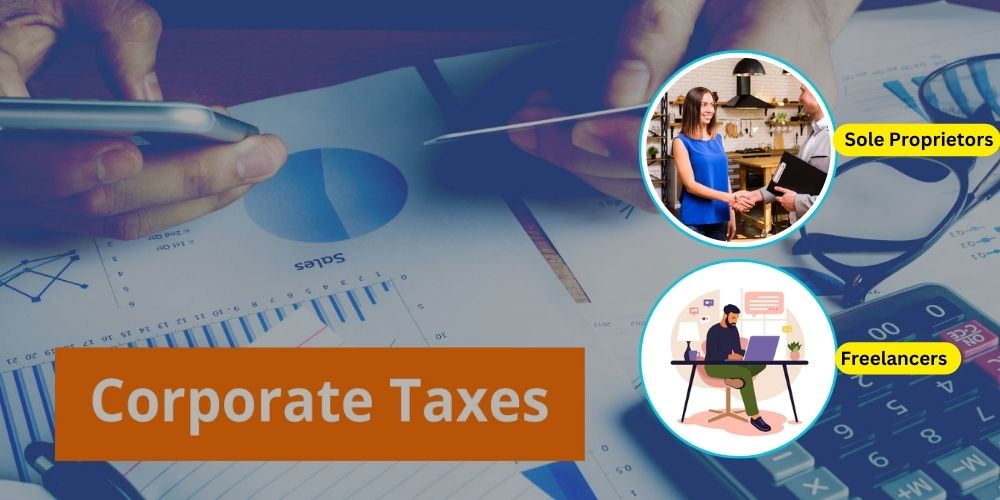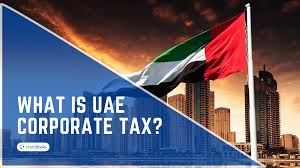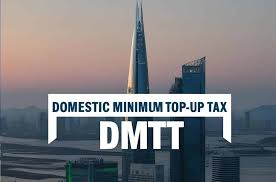Now Reading: Taxation for Freelancers and Sole Proprietors in the UAE: 2025 Compliance Requirements
-
01
Taxation for Freelancers and Sole Proprietors in the UAE: 2025 Compliance Requirements
Taxation for Freelancers and Sole Proprietors in the UAE: 2025 Compliance Requirements

Table of Contents
The UAE’s corporate tax regime, effective since June 2023, has introduced specific compliance requirements for freelancers and sole proprietors in 2025, particularly those with significant business income. These rules align with the UAE’s broader economic goals, including fiscal transparency and global tax standards, while maintaining its attractiveness for professionals, including those in the real estate sector. Below is a detailed analysis of the 2025 taxation and compliance requirements for freelancers and sole proprietors in the UAE, with a focus on key obligations, exemptions, and implications, especially in the context of the real estate market.
Key Taxation and Compliance Requirements for Freelancers and Sole Proprietors in 2025

- Corporate Tax Applicability:
- Threshold: Freelancers and sole proprietors are subject to a 9% corporate tax on taxable income exceeding AED 375,000 (approximately USD 102,000) per year from business or professional activities. Income below this threshold is taxed at 0%.
- Definition of Taxable Persons: Individuals conducting a business or commercial activity in the UAE, including freelancers and sole proprietors, are considered “Taxable Persons” if their annual turnover exceeds AED 1 million (approximately USD 272,000). This includes activities like real estate consultancy, property management, or freelance interior design for real estate projects.
- Exemption: Individuals earning income from wages, personal investments, or real estate investments (e.g., rental income from personal properties) are exempt from corporate tax unless these activities constitute a licensed business.
- Mandatory Tax Registration:
- Requirement: Freelancers and sole proprietors with annual turnover above AED 1 million must register with the Federal Tax Authority (FTA) for corporate tax by March 31, 2025, or within three months of meeting the turnover threshold. Late registration incurs a AED 10,000 penalty (approximately USD 2,720).
- Process: Registration is done online via the FTA’s EmaraTax portal (www.tax.gov.ae). Required documents include Emirates ID, trade license (if applicable), passport, and financial records verifying turnover.
- Real Estate Context: Freelancers in real estate, such as independent agents or property consultants in Dubai or Abu Dhabi, must register if their commission-based income exceeds AED 1 million, even if operating under a Free Zone license.
- Tax Filing and Payment:
- Filing Deadline: Tax returns must be filed within nine months of the financial year-end (e.g., September 30, 2025, for a December 31, 2024, year-end). Returns are submitted electronically via the EmaraTax portal.
- Payment: Corporate tax on taxable income above AED 375,000 is due with the tax return. Payments can be made in installments if approved by the FTA.
- Record-Keeping: Freelancers and sole proprietors must maintain IFRS-compliant financial records for five years, including income statements, invoices, and expense records. This is critical for real estate freelancers tracking commissions or project-based earnings.
- Free Zone Considerations:
- Qualifying Free Zone Persons (QFZPs): Freelancers operating in Free Zones like Dubai Multi Commodities Centre (DMCC) or Abu Dhabi Global Market (ADGM) can benefit from a 0% corporate tax rate on qualifying income (e.g., services provided to international clients or within the Free Zone). Non-qualifying income, such as commissions from mainland UAE property transactions, is taxed at 9% above AED 375,000.
- Compliance: QFZPs must comply with Economic Substance Regulations (ESR) and submit annual ESR reports to maintain 0% tax status. This includes proving adequate substance (e.g., physical presence, employees) in the Free Zone.
- Real Estate Impact: Freelancers in Free Zones offering real estate services (e.g., consultancy for Golden Visa investors) can optimize tax liability by focusing on international clients, but mainland transactions (e.g., Dubai Marina rentals) are taxable.
- Value Added Tax (VAT) Obligations:
- Threshold: Freelancers and sole proprietors with annual supplies (revenue) exceeding AED 375,000 must register for VAT (5% rate) within 30 days of meeting the threshold. Those with supplies between AED 187,500 and AED 375,000 can opt for voluntary registration.
- Compliance: VAT returns are filed quarterly via the EmaraTax portal, with payments due within 28 days of the period’s end. Input VAT on business expenses (e.g., office rent, marketing) can be reclaimed if registered.
- Real Estate Context: Real estate freelancers charging fees for services (e.g., property valuations or staging) must include VAT in invoices and remit it to the FTA. Exemptions apply to residential leases, but commercial property transactions are VAT-liable.
- Proposed Electronic Invoicing (eInvoicing):
- Overview: A proposed eInvoicing system, with public consultation open until February 27, 2025, aims to introduce real-time transaction reporting to enhance transparency and reduce tax evasion.
- Impact: Freelancers will need to adopt eInvoicing software to issue digital invoices compliant with FTA standards, increasing administrative costs but streamlining VAT reporting.
- Real Estate Context: Real estate consultants issuing invoices for services (e.g., Golden Visa property advice) must prepare for eInvoicing, ensuring accurate tracking of taxable transactions.
- Ultimate Beneficial Owner (UBO) Disclosure:
- Requirement: Freelancers and sole proprietors operating as licensed businesses (e.g., under a trade license) must submit UBO information to the relevant authority (e.g., Department of Economic Development or Free Zone authority) and update it regularly.
- Real Estate Context: Independent real estate agents with a business setup must disclose ownership details, ensuring compliance with anti-money laundering regulations, especially for high-value transactions tied to Golden Visa properties.
Implications for Freelancers and Sole Proprietors

- Financial Planning and Cost Management:
- General Impact: Freelancers with turnover above AED 1 million face increased costs due to tax registration, 9% corporate tax on income over AED 375,000, and VAT compliance. Hiring accountants or investing in software (e.g., QuickBooks, Xero) is often necessary.
- Real Estate Specific: Real estate freelancers, such as independent agents in Dubai’s competitive market, must budget for tax liabilities on commissions from high-value sales (e.g., AED 2 million properties for Golden Visa eligibility). Those below the AED 375,000 threshold benefit from the 0% tax rate, supporting small-scale operations.
- Opportunities in Free Zones:
- General Impact: Free Zone setups offer tax advantages for freelancers serving international clients, reducing tax burdens and enhancing competitiveness.
- Real Estate Specific: Freelancers in Free Zones like DMCC can leverage 0% tax on services for overseas Golden Visa investors, but must carefully segregate mainland income (e.g., Dubai Hills Estate transactions) to avoid 9% tax.
- Enhanced Transparency and Compliance:
- General Impact: Mandatory registration, IFRS-compliant records, and eInvoicing increase administrative burdens but align with global standards, boosting the UAE’s reputation as a business hub.
- Real Estate Specific: Compliance ensures trust for clients, particularly Golden Visa investors purchasing properties worth AED 2 million or more, as transparent financials reduce risks of fraud.
- Impact on Market Competitiveness:
- General Impact: Freelancers must balance compliance costs with competitive pricing to retain clients, particularly in saturated markets.
- Real Estate Specific: Independent agents compete with large agencies (e.g., Betterhomes, Haus & Haus) by offering personalized services. Tax exemptions for low-income freelancers (below AED 375,000) allow competitive pricing, while VAT compliance adds credibility for high-value clients.
- Support for Economic Diversification:
- General Impact: Tax revenues fund infrastructure and public services, creating a stable environment for freelancers to operate.
- Real Estate Specific: The Golden Visa Program drives demand for real estate services, increasing opportunities for freelancers in consultancy, valuations, or property management in prime areas like Palm Jumeirah or Saadiyat Island.
Challenges and Considerations
- Administrative Burden: Maintaining IFRS-compliant records and adopting eInvoicing require time and investment, challenging for freelancers with limited resources.
- VAT Complexity: Calculating and remitting VAT on services, especially for real estate transactions, can be complex without proper software or expertise.
- Free Zone Compliance: Ensuring qualifying income and ESR compliance is critical to maintain 0% tax status, requiring careful business structuring.
- Awareness: Many freelancers may be unaware of the March 31, 2025, registration deadline, risking penalties.
Key Compliance Requirements

- Corporate Tax:
- Rate: 9% on taxable income above AED 375,000; 0% below.
- Applicability: Applies to freelancers/sole proprietors with turnover exceeding AED 1 million annually from business activities (e.g., real estate consultancy, property management).
- Exemptions: Income from wages, personal investments, or residential rentals is exempt unless part of a licensed business.
- Tax Registration:
- Mandatory for turnover above AED 1 million by March 31, 2025, via EmaraTax portal (www.tax.gov.ae). Penalty: AED 10,000 for non-compliance.
- Required documents: Emirates ID, trade license (if applicable), passport, financial records.
- Tax Filing:
- File returns within nine months of financial year-end (e.g., September 30, 2025, for December 31, 2024).
- Maintain IFRS-compliant records for five years.
- VAT:
- Mandatory registration for supplies above AED 375,000; voluntary for AED 187,500–375,000.
- File quarterly VAT returns; reclaim input VAT on business expenses.
- Free Zones:
- Qualifying Free Zone Persons (QFZPs) enjoy 0% tax on qualifying income (e.g., international real estate services).
- Non-qualifying income (e.g., mainland property commissions) taxed at 9% above AED 375,000.
- Comply with Economic Substance Regulations (ESR) to maintain 0% tax status.
- eInvoicing:
- Proposed system (consultation until February 27, 2025) requires digital invoices for real-time reporting.
- UBO Disclosure:
- Submit and update Ultimate Beneficial Owner information for licensed businesses.
Implications for Real Estate Freelancers
- Tax Benefits: Income below AED 375,000 is tax-exempt, supporting small-scale agents or consultants.
- Compliance Costs: Registration, VAT, and eInvoicing increase costs but enhance credibility for Golden Visa clients.
- Free Zone Opportunities: 0% tax on international services (e.g., advising overseas investors) boosts competitiveness.
- Market Demand: Golden Visa-driven property sales (AED 2 million threshold) create opportunities for freelance consultants.
Recommendations
- Register Promptly: Complete tax registration by March 31, 2025, to avoid penalties.
- Use Accounting Software: Adopt tools like QuickBooks or Xero for IFRS compliance and VAT tracking.
- Leverage Free Zones: Set up in DMCC or ADGM for tax benefits if serving international clients.
- Seek Professional Advice: Engage tax consultants (e.g., BMS Auditing) for compliance and optimization.
- Monitor eInvoicing: Prepare for digital invoicing by investing in compatible software.
Conclusion
In 2025, freelancers and sole proprietors in the UAE, particularly those in real estate, face clear tax obligations under the corporate tax regime. With a 9% tax on income above AED 375,000, mandatory registration for turnover exceeding AED 1 million, and VAT requirements, compliance is critical to avoid penalties. Free Zone setups offer tax advantages, while eInvoicing and UBO disclosures enhance transparency. Real estate freelancers benefit from the Golden Visa-driven market but must manage compliance costs to remain competitive. For guidance, consult the FTA’s EmaraTax portal (www.tax.gov.ae) or professional advisors like BMS Auditing or ADAM Global.
WATCH MORE: https://www.instagram.com/reel/C6sq9nWOsRz/
READ MORE: Domestic Minimum Top-Up Tax (DMTT) in the UAE: What Multinational Enterprises Need to Know in 2025






















